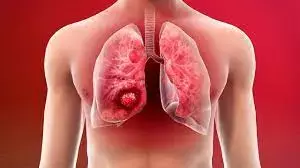- Home
- Medical news & Guidelines
- Anesthesiology
- Cardiology and CTVS
- Critical Care
- Dentistry
- Dermatology
- Diabetes and Endocrinology
- ENT
- Gastroenterology
- Medicine
- Nephrology
- Neurology
- Obstretics-Gynaecology
- Oncology
- Ophthalmology
- Orthopaedics
- Pediatrics-Neonatology
- Psychiatry
- Pulmonology
- Radiology
- Surgery
- Urology
- Laboratory Medicine
- Diet
- Nursing
- Paramedical
- Physiotherapy
- Health news
- Fact Check
- Bone Health Fact Check
- Brain Health Fact Check
- Cancer Related Fact Check
- Child Care Fact Check
- Dental and oral health fact check
- Diabetes and metabolic health fact check
- Diet and Nutrition Fact Check
- Eye and ENT Care Fact Check
- Fitness fact check
- Gut health fact check
- Heart health fact check
- Kidney health fact check
- Medical education fact check
- Men's health fact check
- Respiratory fact check
- Skin and hair care fact check
- Vaccine and Immunization fact check
- Women's health fact check
- AYUSH
- State News
- Andaman and Nicobar Islands
- Andhra Pradesh
- Arunachal Pradesh
- Assam
- Bihar
- Chandigarh
- Chattisgarh
- Dadra and Nagar Haveli
- Daman and Diu
- Delhi
- Goa
- Gujarat
- Haryana
- Himachal Pradesh
- Jammu & Kashmir
- Jharkhand
- Karnataka
- Kerala
- Ladakh
- Lakshadweep
- Madhya Pradesh
- Maharashtra
- Manipur
- Meghalaya
- Mizoram
- Nagaland
- Odisha
- Puducherry
- Punjab
- Rajasthan
- Sikkim
- Tamil Nadu
- Telangana
- Tripura
- Uttar Pradesh
- Uttrakhand
- West Bengal
- Medical Education
- Industry
Plant-rich diet may reduce lung cancer risk: study

A diet rich in plant substances called anthocyanidins may reduce lung cancer risk according to a recent study published in the Nutrients.
Cancer that begins in the lungs and most often occurs in people who smoke. Two major types of lung cancer are non-small cell lung cancer and small cell lung cancer. Causes of lung cancer include smoking, second-hand smoke, exposure to certain toxins and family history. Symptoms include a cough (often with blood), chest pain, wheezing and weight loss. These symptoms often don't appear until the cancer is advanced. Treatments vary but may include surgery, chemotherapy, radiation therapy, targeted drug therapy and immunotherapy.
Anthocyanidins are a kind of water-soluble flavonoids widely found in flowers and fruits of many plants. Although the beneficial effect of anthocyanidins in cancer prevention has been discussed, the value of anthocyanidins in lung cancer prevention requires further investigation. In this study, the researchers aimed to explore the role of dietary anthocyanidins in the prevention of lung cancer in population-based prospective studies.
Data of participants in this study were collected from the Prostate, Lung, Colorectal, and Ovarian Cancer Screening Trial. Hazard ratios (HRs) and 95% confidence intervals (CIs) were calculated in Cox proportional hazards regression for the association of dietary anthocyanidins and lung cancer risk. The dose-response relationship was explored between total anthocyanidins and the incidence of lung cancer.
Results:
- A total of 97,993 participants were included in this study.
- The calculated HRs showed a trend that a higher quartile of total anthocyanidins indicated lower risk of lung cancer after adjusting for covariates
- A non-linear association between total anthocyanidins and lung cancer risk was found in the restricted cubic spline model.
Thus, a protective association between dietary anthocyanidins and risk of lung cancer in Americans was investigated.
Reference:
Zhang Y, Zhu M, Wan H, Chen L, Luo F. Association between Dietary Anthocyanidins and Risk of Lung Cancer. Nutrients. 2022 Jun 26;14(13):2643. doi: 10.3390/nu14132643. PMID: 35807824; PMCID: PMC9268346.
Keywords:
anthocyanidins; dose-response analysis; lung cancer, Yin Zhang, Min Zhu, Huajing Wan, Ling Chen, Fengming Luo, nutrients
Dr. Shravani Dali has completed her BDS from Pravara institute of medical sciences, loni. Following which she extensively worked in the healthcare sector for 2+ years. She has been actively involved in writing blogs in field of health and wellness. Currently she is pursuing her Masters of public health-health administration from Tata institute of social sciences. She can be contacted at editorial@medicaldialogues.in.
Dr Kamal Kant Kohli-MBBS, DTCD- a chest specialist with more than 30 years of practice and a flair for writing clinical articles, Dr Kamal Kant Kohli joined Medical Dialogues as a Chief Editor of Medical News. Besides writing articles, as an editor, he proofreads and verifies all the medical content published on Medical Dialogues including those coming from journals, studies,medical conferences,guidelines etc. Email: drkohli@medicaldialogues.in. Contact no. 011-43720751


